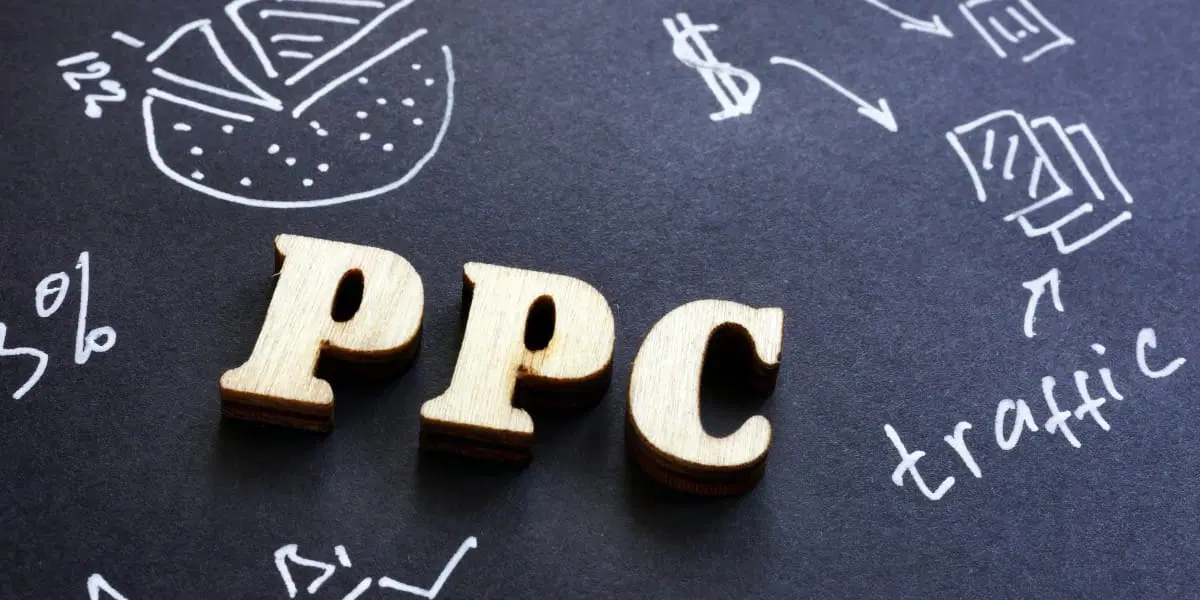In the hyper-competitive world of insurance marketing, standing out is more challenging—and more important—than ever. With customer acquisition costs rising and consumer trust shifting toward digital-first experiences, traditional methods of outreach are no longer enough. That’s where PPC advertising for insurance comes in.
Whether you’re an independent agent or a large firm, a well-executed PPC (Pay-Per-Click) strategy can help you generate high-quality leads, increase brand awareness, and control marketing costs—if done right. In this guide, we’ll walk you through everything you need to know about building and optimizing PPC campaigns that perform in the insurance industry in 2025.
Why PPC Advertising Is Essential for Insurance Agencies in 2025
Why Organic Alone Isn’t Enough
Insurance is one of the most expensive and competitive industries for paid search. Still, it remains essential. Why? Because nearly 90% of consumers start their insurance journey online—often beginning with a search engine query.
With SEO taking months to yield results, PPC fills a crucial gap by delivering instant visibility for relevant, high-intent searches like “affordable car insurance near me” or “best life insurance for families.”
Key PPC Benefits for Insurance:
-
Instant exposure on Google, Bing, Facebook, and more
-
Highly targeted traffic based on location, demographics, and intent
-
Measurable ROI through advanced tracking tools
-
Full control over budget and bidding strategies
Did You Know? The average CPC for insurance keywords is $3.44 on Google Search, and the average conversion rate is around 2.78%.
Choosing the Right PPC Platforms for Insurance Ads
Not All Platforms Are Equal
The success of your insurance PPC campaign heavily depends on choosing the right advertising platform. Here’s a breakdown of the top contenders:
1. Google Ads
-
Best for high-intent users searching for specific insurance types.
-
Allows detailed keyword targeting and location-specific campaigns.
-
Offers extensions like sitelinks, callouts, and structured snippets.
2. Facebook & Instagram Ads
-
Ideal for retargeting and demographic-based campaigns.
-
Great for raising awareness, especially for life and health insurance.
-
Cost-effective with a lower average CPC than Google.
3. Microsoft/Bing Ads
-
Less competitive than Google, with 20–35% lower CPC.
-
Particularly useful for targeting older demographics who prefer Bing.
4. LinkedIn Ads
-
Best for B2B and commercial insurance providers.
-
High-quality lead potential but at a premium cost.
Real-World Example: Cota Insurance used Facebook Ads to generate over 2,000 travel insurance leads at a $0.86 CPC and a 39% conversion rate.
Keyword Research for Insurance PPC Campaigns
Start With Search Intent
Keyword selection can make or break your campaign. It’s not about choosing the most popular terms—it’s about choosing the right ones that match your audience’s intent.
Types of Keywords to Use:
-
High-Intent Commercial Keywords: e.g., “get auto insurance quote”, “buy health insurance online”
-
Long-Tail Keywords: e.g., “cheap renters insurance for college students in California”
-
Geo-Targeted Keywords: e.g., “home insurance in Tampa FL”
Avoid:
-
Broad, non-commercial terms (e.g., “types of insurance”)
-
Overly competitive single-word keywords
Recommended Tools:
-
Google Keyword Planner
-
SEMrush or Ahrefs
-
Ubersuggest
-
AnswerThePublic (for FAQs and topic research)
Insight: Some of the most expensive keywords in the industry include terms like “car insurance quote” or “business liability insurance” — costing over $50 per click.
Crafting High-Performance Insurance PPC Ads
Writing Compelling Ad Copy
Your ad needs to do more than show up—it needs to grab attention and convert. Great copy taps into emotion, urgency, and value.
Tips for Effective Ad Copy:
-
Use strong, benefit-driven headlines (e.g., “Save 30% on Auto Insurance Today”)
-
Include trust-building terms: “licensed”, “local”, “free quote”
-
End with a strong CTA: “Compare Policies in Minutes,” “Get a Quote Now”
Ad Extensions That Boost CTR:
-
Call Extensions – Ideal for mobile users
-
Sitelinks – Link to FAQs, reviews, or policy pages
-
Location Extensions – Drive foot traffic for local agencies
A/B Testing Ideas:
-
Try different headline variants
-
Test urgency vs. trust-based messaging
-
Experiment with display URLs
Optimizing Landing Pages for Insurance Conversions
Your Ad Is Only Half the Battle
Even the best PPC ad will underperform if it leads to a generic or poorly designed landing page.
Key Landing Page Features:
-
Clear and compelling headline that matches the ad
-
One strong value proposition (e.g., “Compare 20+ policies instantly”)
-
Trust indicators: reviews, ratings, BBB accreditation, certifications
-
Short lead forms (Name, Email, Phone—keep it simple)
-
Responsive, mobile-first design
-
Load time under 3 seconds
Case Study: Coastal Insurance
By optimizing their PPC landing page, Coastal Insurance achieved:
-
78.5% increase in conversions
-
Significant drop in cost-per-acquisition
Budgeting, Bidding & ROI Tracking for Insurance PPC

💸 Set Your Budget With ROI in Mind
In insurance, your cost-per-lead (CPL) may be higher than in other industries, but the lifetime value (LTV) is also significantly higher.
Budget Planning Tips:
-
Base budgets on expected CPL by policy type:
-
Auto: $50–$100
-
Life: $80–$150
-
Health: $70–$120
-
-
Allocate more to campaigns that convert (based on historical data)
-
Use dayparting to bid higher during peak search hours
Bidding Strategies:
-
Manual CPC for granular control
-
Enhanced CPC to let Google adjust based on likelihood of conversion
-
Target CPA or ROAS (advanced)
Essential Tracking Tools:
-
Google Analytics 4 (GA4)
-
Google Tag Manager
-
Call tracking software (e.g., CallRail)
-
CRM integration (HubSpot, Salesforce)
Common PPC Mistakes Insurance Marketers Make (and How to Avoid Them)
Even experienced marketers fall into these traps.
Top Mistakes:
-
No Negative Keywords – Wastes budget on irrelevant clicks
-
Sending Traffic to Homepage – Causes user confusion and bounce
-
Ignoring Mobile Optimization – Misses majority of searchers
-
No Retargeting Strategy – Leaves warm leads untapped
-
Poor Lead Follow-Up – Weakens ROI potential
Quick Fixes:
-
Add 25–50 negative keywords at campaign start
-
Always direct to custom, relevant landing pages
-
Use mobile-optimized design and click-to-call buttons
-
Set up retargeting with Google Display and Facebook Pixel
-
Automate lead nurturing emails or texts
How AI & Automation Are Transforming Insurance PPC Campaigns
The Age of Smart PPC
AI is changing the way insurance agencies manage PPC. From automated bidding to intelligent ad creation, AI can dramatically improve performance while reducing manual labor.
Key AI Tools & Features:
-
Google Performance Max – AI-driven campaigns that auto-optimize for conversions
-
ChatGPT – Generate high-converting ad copy variations
-
Smart Bidding – Uses machine learning to set real-time optimal bids
-
AI Analytics – Predictive analytics for ad performance forecasting
Expert Insight:
“AI tools have helped us lower our CPA by over 30% while improving lead quality.” – Marketing Director, Mid-Sized Insurance Agency
Mastering PPC for Long-Term Insurance Growth
As the insurance landscape becomes more digitized and competitive, PPC advertising isn’t just an option—it’s a necessity. When executed strategically, PPC campaigns can provide a predictable, scalable stream of high-quality leads that fuel agency growth.
Final Takeaways:
-
Start with clear goals and align platform selection accordingly.
-
Conduct in-depth keyword research to match user intent.
-
Optimize both ad copy and landing pages for conversions.
-
Monitor performance rigorously and adjust based on data.
-
Use AI and automation to scale and improve efficiency.
Bonus: PPC Checklist for Insurance Marketers
-
Conduct keyword research with buyer intent focus
-
Set up Google Ads with ad extensions
-
Create dedicated landing pages per policy type
-
Track conversions via GA4 or CRM integration
-
Add negative keywords weekly
-
A/B test ad copy every 14 days
-
Retarget non-converting visitors
-
Review ROI by channel monthly
Call to Action: Ready to Supercharge Your Insurance Leads?
Whether you’re
